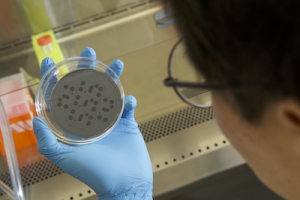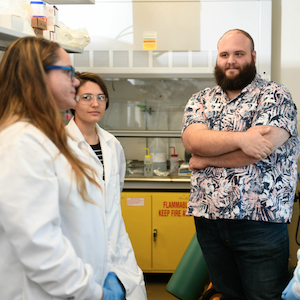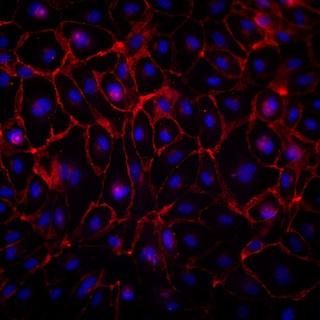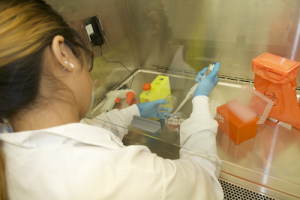BME faculty in the Biomedical Microdevices area use devices and structures made with micro/nanofabrication techniques to solve problems in medicine and biology. Devices are fabricated on both campuses using state-of-the-art facilities: NNF at NCSU and the CHANL at UNC. An 800 sq. foot class 1000 softwall cleanroom is housed within the BME department that contains tools for micro/nanofabrication and is geared towards studies at the interface of engineering and biology. Equipment for cell and molecular biology is housed next door to the cleanroom.
 Faculty research in the Microsystems Engineering area includes developing systems for analyzing single cells, high throughput screening of cell cultures, culturing microscale tissues and sensing DNA and other biologically important molecules. Several faculty are also using micro/nanofabrication techniques to create the next generation of biomaterials, medical devices and point-of-care diagnostics.
Faculty research in the Microsystems Engineering area includes developing systems for analyzing single cells, high throughput screening of cell cultures, culturing microscale tissues and sensing DNA and other biologically important molecules. Several faculty are also using micro/nanofabrication techniques to create the next generation of biomaterials, medical devices and point-of-care diagnostics.
BME-based Biomedical Microdevices Labs

Biointerface Lab
Our primary area of interest is the broad application of soft nanomaterials to engineer devices which monitor, mimic or augment biological function. Specific topics of research include wearable and implantable biosensors, organ-on-chip models and human-machine interfaces.
Visit the Biointerface Lab website…
Polacheck Lab
The Polacheck laboratory is an interdisciplinary team of scientists and engineers who build microfluidic models of human tissues. We use these human microtissue models to study how cells interact with their environment and how these interactions are disrupted in diseases such as cancer, cardiovascular disease, and fibrosis. Our long-term objectives are to translate the technology and techniques developed to build microtissues into tissue engineered therapies for organ replacement and regenerative medicine.
Visit the Polacheck Lab website…


